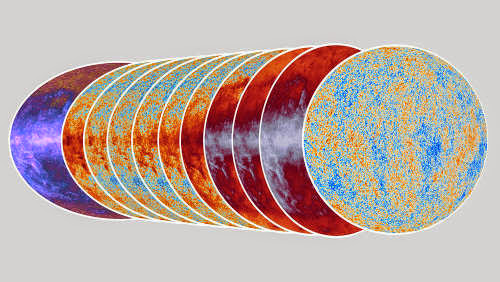
This collection of 31 articles presents the initial scientific results extracted from this first Planck dataset, which measures the cosmic microwave background (CMB) with the highest accuracy to date. It provides major new advances in different domains of cosmology and astrophysics.In the first paper there is an overview of 2013 science results, and we can read:
The Universe observed by Planck is well-fit by a six parameter, vacuum-dominated, cold dark matter (ACDM) model, and we provide strong constraints on deviations from this model.But, in the meanwhile, ATLAS published a preprint about the quest of the dark matter in LHC:
The data are found to be consistent with the Standard Model expectations and limits are set on the mass scale of effective field theories that describe scalar and tensor interactions between dark matter and Standard Model particles. Limits on the dark-matter--nucleon cross-section for spin-independent and spin-dependent interactions are also provided. These limits are particularly strong for low-mass dark matter. Using a simplified model, constraints are set on the mass of dark matter and of a coloured mediator suitable to explain a possible signal of annihilating dark matter.Tommaso Dorigo, examining ATLAS' results, concludes:
the ATLAS search increases significantly the sensitivity with respect to past searches, but no signal is found. As attractive as DM existence is as an economical explanation of a wealth of cosmological observations, the nature of dark matter continues to remain unknown.
via phys.org

No comments:
Post a Comment
Markup Key:
- <b>bold</b> = bold
- <i>italic</i> = italic
- <a href="http://www.fieldofscience.com/">FoS</a> = FoS